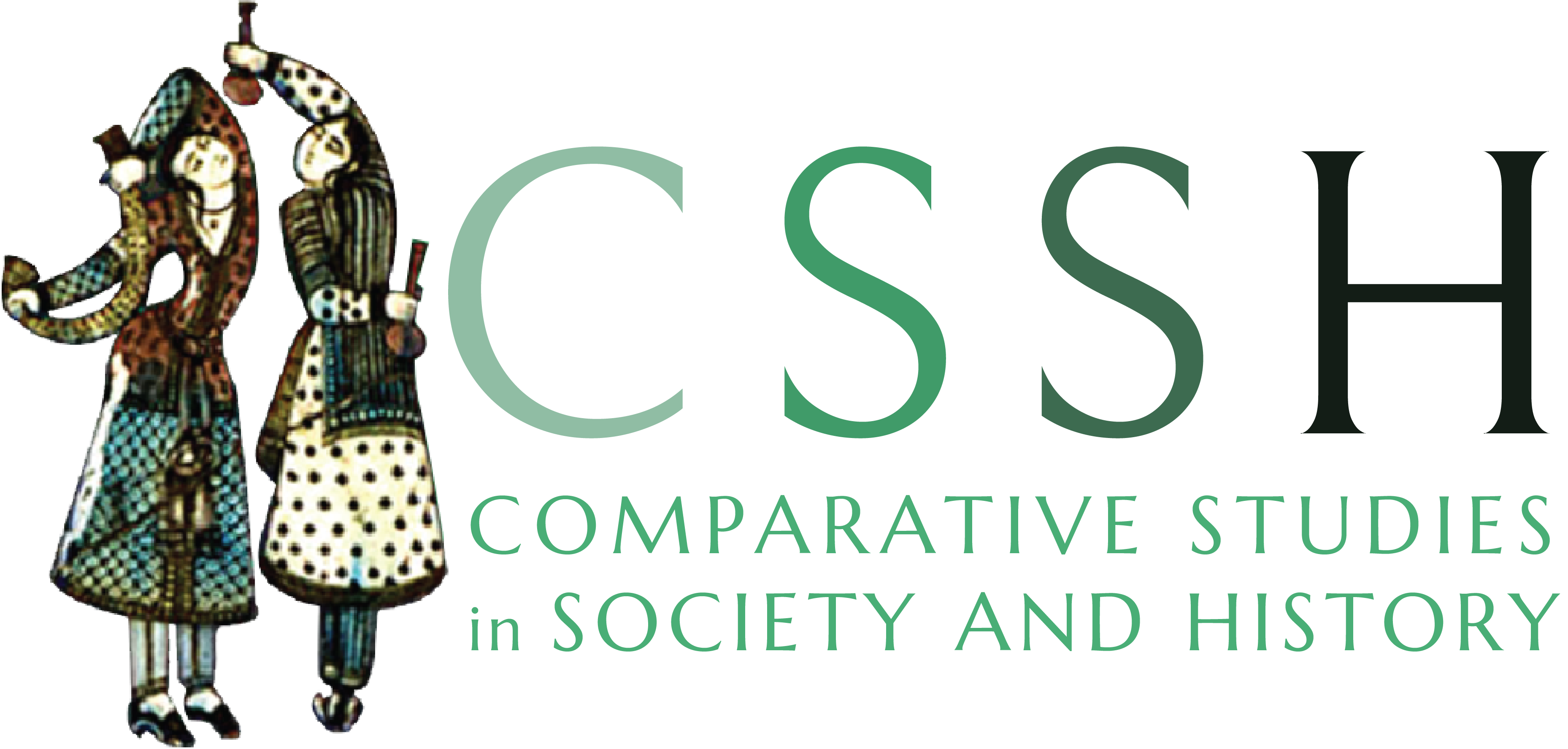CSSH congratulates Marc Baer (“Turk and Jew in Berlin: The First Turkish Migration to Germany and the Shoah” (CSSH 55-2, 2013), “Tolerance and Conversion in the Ottoman Empire: A Conversation” (CSSH 51-4, 2009, with Ussama Makdisi and Andrew Shryock), and “The Double Bind of Race and Religion: The Conversion of the Dönme to Turkish Secular Nationalism” (CSSH 46-4, 2005)), whose The Ottomans: Khans, Caesars, and Caliphs (2021) has been shortlisted for the Wolfson History Prize! They praise the book:
A hugely impressive sweeping narrative. Covering seven centuries, this book adds a new perspective to global history by emphasising the role of this longstanding and important dynasty.
Congratulations also to Julie Gibbings (““Their debts follow them into the afterlife”: German Settlers, Ethnographic Knowledge, and the Forging of Coffee Capitalism in Nineteenth-Century Guatemala” (CSSH 62-2, 2010)) upon the publication of her new book, Our Time is Now: Race and Modernity in Postcolonial Guatemala (2022, Cambridge University Press). The book is described,
Postcolonial histories have long emphasized the darker side of narratives of historical progress, especially their role in underwriting global and racial hierarchies. Concepts like primitiveness, backwardness, and underdevelopment not only racialized and gendered peoples and regions, but also ranked them on a seemingly naturalized timeline – their ‘present’ is our ‘past’ – and reframed the politics of capitalist expansion and colonization as an orderly, natural process of evolution towards modernity. Our Time is Now reveals that modernity particularly appealed to those excluded from power, precisely because of its aspirational and future orientation. In the process, marginalized peoples creatively imagined diverse political futures that redefined the racialized and temporal terms of modernity. Employing a critical reading of a wide variety of previously untapped sources, Julie Gibbings demonstrates how the struggle between indigenous people and settlers to manage contested ideas of time and history as well as practices of modern politics, economics, and social norms were central to the rise of coffee capitalism in Guatemala and to twentieth century populist dictatorship and revolution.
CSSH is excited to share new work by A. Azfar Moin (“Sovereign Violence: Temple Destruction in India and Shrine Desecration in Iran and Central Asia” (CSSH 57-2, 2015)) and Alan Strathern (“Transcendentalist Intransigence: Why Rulers Rejected Monotheism in Early Modern Southeast Asia and Beyond” (CSSH 49-2, 2007)): Sacred Kingship in World History: Between Immanence and Transcendence (Columbia University Press, 2022). The publisher writes,
Sacred kingship has been the core political form, in small-scale societies and in vast empires, for much of world history. This collaborative and interdisciplinary book recasts the relationship between religion and politics by exploring this institution in long-term and global comparative perspective.
Editors A. Azfar Moin and Alan Strathern present a theoretical framework for understanding sacred kingship, which leading scholars reflect on and respond to in a series of essays. They distinguish between two separate but complementary religious tendencies, immanentism and transcendentalism, which mold kings into divinized or righteous rulers, respectively. Whereas immanence demands priestly and cosmic rites from kings to sustain the flourishing of life, transcendence turns the focus to salvation and subordinates rulers to higher ethical objectives. Secular modernity does not end the struggle between immanence and transcendence—flourishing and righteousness—but only displaces it from kings onto nations and individuals.
After an essay by Marshall Sahlins that ranges from the Pacific to the Arctic, the book contains chapters on religion and kingship in settings as far-flung as ancient Egypt, classical Greece, medieval Islam, Mughal India, modern European drama, and ISIS. Sacred Kingship in World History sheds new light on how religion has constructed rulership, with implications spanning global history, religious studies, political theory, and anthropology.
Congratulations to Liping Wang (“The State, Relational Governance, and Nomad Sedentarization: Land Reform in Inner Mongolia, 1900–1911” (CSSH 56-3, 2014)) for her new publication, The Imperial Creation of Ethnicity: Chinese Policies and the Ethnic Turn in Inner Mongolian Politics, 1900-1930 (2022, Brill). Brill describes the text thusly:
How did inter-ethnic solidarity become attenuated in the era of the Chinese imperial transformation (1900-1930)? Based on Inner Mongolian cases, this book examines the transformations effective in the policy domains of land affairs, military organization, and law, which were initiated to strengthen state centralization, yet resulted in the sharpening of ethnic boundaries.
Using unpublished archival sources, this book benefits from three key strengths. It addresses the question of Mongol-Han relationship in the early Republican period (1911-1930), it illuminates the details of imperial administration and its changes along with the shift of the regime, and it explores the theoretical potentials of the near frontier approach and positions the Chinese imperial transition within a comparative perspective.
CSSH would also like to congratulate Sarah E. Vaughn (“Erosion by Design: Rethinking, Innovation, and Credibility in Guyana,” forthcoming) upon the publication of her book Engineering Vulnerability: In Pursuit of Climate Adaptation (Duke University Press, 2022). The publisher writes,
In Engineering Vulnerability Sarah E. Vaughn examines climate adaptation against the backdrop of ongoing processes of settler colonialism and the global climate change initiatives that seek to intervene in the lives of the world’s most vulnerable. Her case study is Guyana in the aftermath of the 2005 catastrophic flooding that ravaged the country’s Atlantic coastal plain. The country’s ensuing engineering projects reveal the contingencies of climate adaptation and the capacity of flooding to shape Guyanese expectations about racial (in)equality. Analyzing the coproduction of race and vulnerability, Vaughn details why climate adaptation has implications for how we understand the past and the continued human settlement of a place. Such understandings become particularly apparent not only through experts’ and ordinary citizens’ disputes over resources but in their attention to the ethical practice of technoscience over time. Approaching climate adaptation this way, Vaughn exposes the generative openings as well as gaps in racial thinking for theorizing climate action, environmental justice, and, more broadly, future life on a warming planet.


